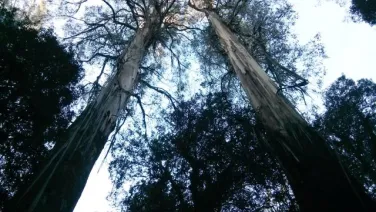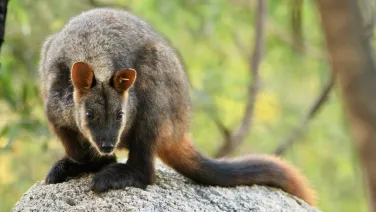
Research projects
Explore CBA-funded projects at ANU, driving innovative biodiversity research. Discover collaborative initiatives addressing global ecological challenges through cutting-edge science and data-driven solutions.
CBA's Ignition Grants foster novel collaborations between researchers from at least two partner institutions (ANU, CSIRO, UC), aiming to lay the groundwork for larger research proposals. Since 2012, over 60 projects have been funded across 11 rounds. In June 2016, grant recipients showcased their progress at a symposium, delivering lightning talks that highlighted the scheme's success in driving diverse and innovative research.









